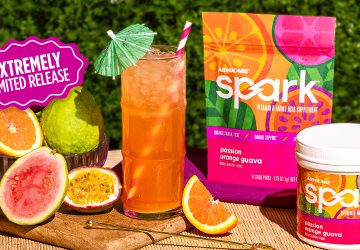
Probiotic supplements have been around for years now and are widely used for digestive health and other potential health benefits. These products come in various forms including capsules, drinks, powders, and gummies, but are also found in certain foods. Incorporating probiotics in daily routine continues to expand among consumers. As of 2021, the market is at $58B and is trending to grow an estimated 7.5% by 2030.1
So, what really are probiotics, and how do they affect your overall health? How could they be incorporated into healthy lifestyles?
All about the Microbiome
In general, bacteria tend to get a bad rap. Microorganisms have a reputation for making people sick. In reality, your body is home to a mix of many different types of bacteria that are essential to health and well-being. These “good guy” bacteria live on your skin, in your mouth, throughout your digestive system, and elsewhere in and on the body. They can help improve immune function, digestion, the absorption of nutrients, and can help interfere with “bad guy” bacteria to prevent their multiplying into potential problems. 2
Various strains of “good” bacteria in your gut are responsible for helping to breakdown fats and proteins consumed. Your digestive tract is home to well over 500 different species of bacteria, all of which are vital to nutrient digestion and absorption. The population of good and bad bacteria living in your digestive tract is called your “gut flora” or microbiome. Out here, bacterial cells outnumber human cells 10:1.2
Here’s Dr. Gail A. Cresci, PhD, RD, LD, CNSC, and member of the AdvoCare Scientific Medical Advisory Board describing this incredible system in more detail.
How Probiotics Help
When combinations of diet, stress, illness, or medications throw gut flora off balance, discomforts and health problems may result. While probiotic products can contain various types of bacteria, and even some yeasts, two big hitters are groups (genera) Lactobacillus and Bifidobacterium. Many times, these two organisms are common ingredients in probiotic supplements. Some probiotic products also contain ingredients called “prebiotics,” that help to favor the growth of beneficial bacteria.3
Probiotics in Foods
Beneficial bacteria are also naturally present in certain foods or added during production. Let’s discuss a couple of foods that include probiotics – yogurt and kombucha.
- Yogurt is one of the most well-known food sources of healthy microorganisms. Yogurt is produced from milk that has been fermented by lactic acid bacteria (lactobacillus). Look for yogurt with “live or active cultures” listed on the label.
- Kombucha is black or green tea fermented by bacteria and yeast. This beverage continues to gain popularity in the U.S. due to its probiotic benefits. Evidence of its probiotic benefits related to the fermentation process are promising, but other potential benefits, such as anxiety reduction and immunity boosting, still lack scientific evidence. Fermented foods like sauerkraut, pickles and kimchi also contain healthy lactic acid bacteria that can help support healthy gut flora.
Do you spot a theme there? Fermentation is the chemical breakdown of a substance by bacteria, yeasts, or other microorganisms. When active beneficial bacteria or yeasts remain in food products in the diet, we may reap health benefits. 4
Probiotics Supplements
Supplementation can also be a great option to ensure you’re consistently incorporating probiotics into routine. In general, it’s best to try to find supplements that contain a minimum of 1B CFUs (or colony forming units) and have either Lactobacillus, Bifidobacterium or Saccharomyces boulardii – all of which are backed by substantial research.5
If you’re really looking to press the reset button, the AdvoCare 10-Day Reset™ is a great system to consider. In addition to Synbiotic Ultra™ (which has 10B CFUs of eight beneficial strains), the 10-day system also includes AdvoCare® Fiber, and AdvoCare Cleanse tablets. Each of these supplements are taken at specifically timed intervals – all of which help support improved digestion and internal cleansing.*
Choosing to include probiotic supplements and/or foods into our diets can have positive effects on our health, but it is important to discuss those effects with your healthcare provider. If you are experiencing specific digestive problems or abdominal discomfort, please consult your physician to address your symptoms and any underlying issues that could be causing them.
* These statements have not been evaluated by the Food and Drug Administration. This product is not intended to diagnose, treat, cure or prevent any disease.
References:
1. Probiotics market size: Industry report, 2021 -2030. Probiotics Market Size | Industry Report, 2021 -2030. (n.d.). Retrieved September 27, 2022, from https://www.grandviewresearch.com/industry-analysis/probiotics-market
2. Ciorba M. A. (2012). A gastroenterologist’s guide to probiotics. Clinical gastroenterology and hepatology : the official clinical practice journal of the American Gastroenterological Association, 10(9), 960–968. https://doi.org/10.1016/j.cgh.2012.03.024
3. U.S. Department of Health and Human Services. (n.d.). Probiotics: What you need to know. National Center for Complementary and Integrative Health. Retrieved September 27, 2022, from https://www.nccih.nih.gov/health/probiotics-what-you-need-to-know
4. The benefits of probiotics bacteria. Harvard Health. (2017, June 7). Retrieved September 27, 2022, from https://www.health.harvard.edu/staying-healthy/the-benefits-of-probiotics
5. Team, D. H. (2020, October 9). How to pick the best probiotic for you. Cleveland Clinic. Retrieved September 27, 2022, from https://health.clevelandclinic.org/how-to-pick-the-best-probiotic-for-you/#:~:text=A%20general%20recommendation%20is%20to,of%20the%20most%20researched%20probiotics.





